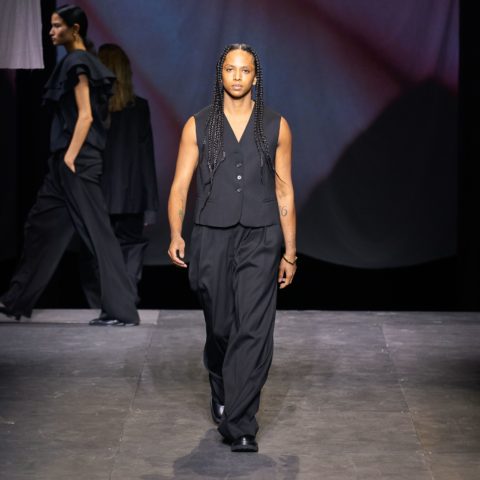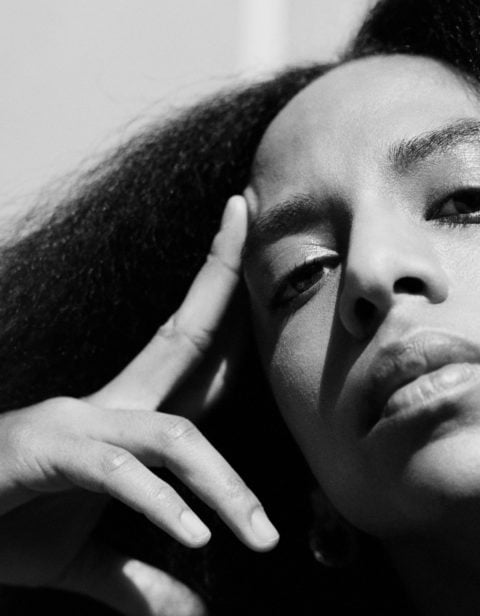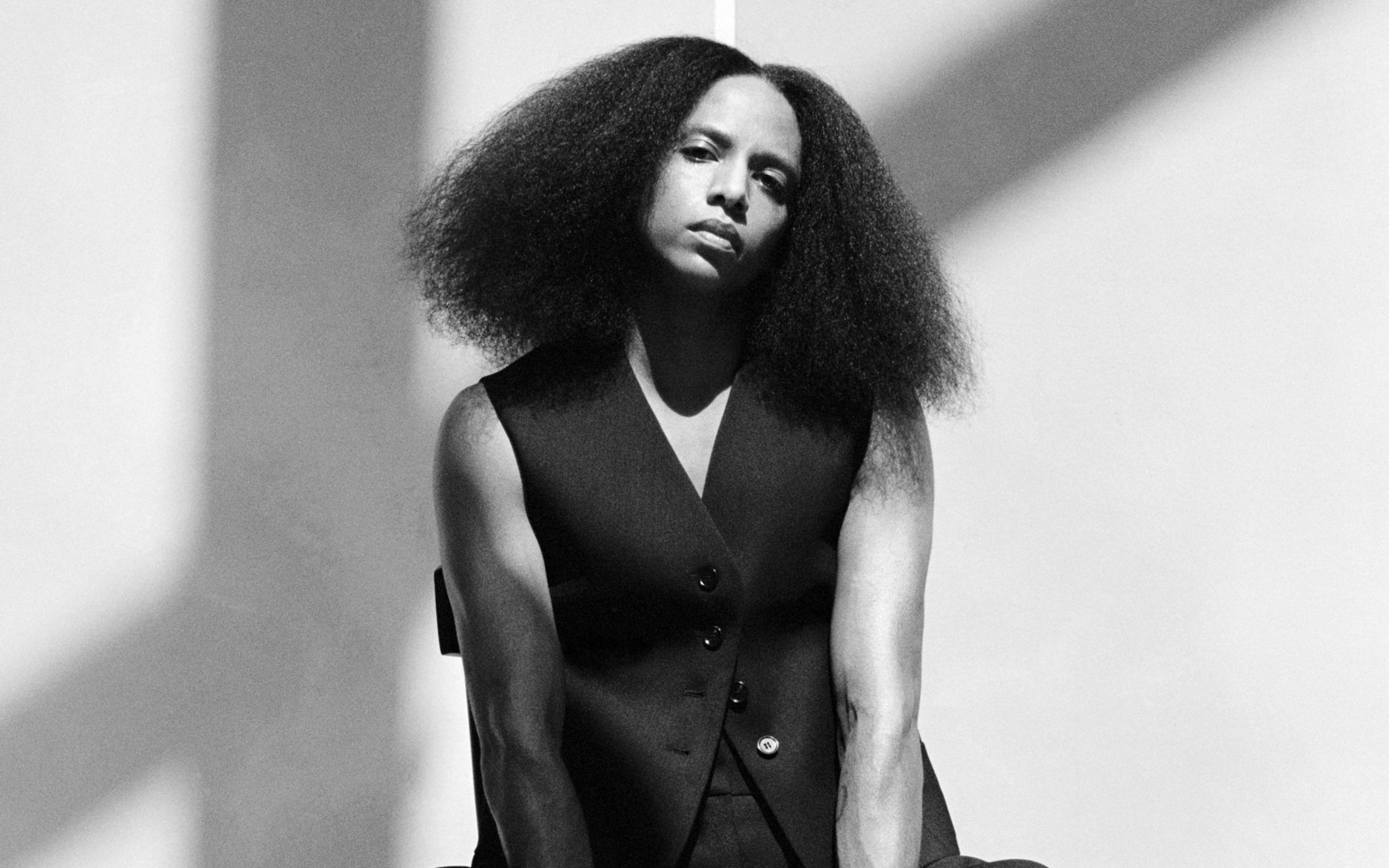“Fashion is art, and any artistic expression can be activist in nature.”
Clothing is more than what you wear, it’s a way to express yourself artistically, says activist Janaya Future Khan. It involves experimentation and making yourself uncomfortable. But when you find what makes you happy, you cultivate a power that becomes present in all other aspects of your life.
Khan is a storyteller, among other things. As co-founder of Black Lives Matter Toronto and an international ambassador for the Black Lives Matter Network, they’re no stranger to hard conversations. Last year, after the COVID-19 pandemic hit, the Toronto-born advocate began using their Instagram as a space to talk about complex issues. Their weekly live streams, dubbed “Sunday Sermons,” range from more personal topics like self-worth and anxiety to commentary on pop culture and political discourse. And during an undoubtedly isolating time, Khan has nurtured an online community dedicated to growth, self-discovery and multi-faceted activism.
As in-person events have picked up again, Khan’s influential presence has manifested itself in physical spaces, too. Take London-based contemporary brand COS, which enlisted Khan for its Fall/Winter 2021 campaign and runway show. In keeping with the brand’s laidback aesthetic, the collection highlights loosely-fitted, layered styles. In an official release, COS states its latest collection is also crafted toward sustainability and circularity, using repurposed materials and recycled fabrics. Khan’s collaboration with the clothing brand makes sense — as they tell me, fashion is a mode for activism, and COS’s relaxed fits represent the space and possibility needed to advance the fashion world in a sustainable direction.

As a non-binary person in the fashion industry — which has historically enforced the gender binary — Khan is helping to break down traditional barriers surrounding clothing. When asked if they ever deal with imposter syndrome, Khan responds, “I decided to step out of the story I was born into and write my own.” Below, FASHION speaks with Janaya Future Khan about the intersection of fashion and activism, dressing as a means for empowerment, and the future of sustainability.
How has your work in fashion connected to your role as an activist?
Fashion is art, and any artistic expression can be activist in nature. The society we live in requires an adherence to a mythical norm that dictates everything from haircuts to clothes to jewelry and shoes. But fashion pushes against the limits of our imagination and invites us to pursue authentic expression that transcends limits and embodies the liminal. Growing up, I never fit in. There were times when it didn’t even feel like my body was my own because I was so policed by the world around me. Fashion provided the creative space to build agency, and agency is about choice. Choice is infectious, and this newfound power informs every aspect of my life, especially activism.
How does COS’s collection align with your personal style?
COS is fluid. Streamlined, elegant and durable. I can be at a protest, in a studio, or on a stage in anything COS makes, and this is perfectly aligned with my personal style.
The COS collection embraces fluidity through draped, layered styles and oversized fits. Do you feel that this type of fluidity in clothing is where the fashion world is headed?
Fashion works in the delicate balance of being in tune with where the world is now and futurists in where the world will be, often acting as the curator of culture and taste along the way. Much like the rest of the world, we are grappling with the tension between creativity and capitalism, glamour and global despair, dreams and dystopia. Fashion will recycle and upcycle material. It will digitize as our lives become more intertwined with technology. We will have to move beyond fast fashion and build accessibility alongside sustainability. Oversized fits and layering are a metaphor for space and possibility, and that is precisely where I see fashion headed. COS is about fluidity, and that word, like the water it implies, is essential.

In your last Sunday Sermon, you spoke about existentialism and cynicism, specifically brought on by climate change. The fashion industry is notorious for its negative environmental impact. How do you think people can partake in fashion while combating this feeling of angst surrounding climate change?
To live in a society such as ours, and to believe in justice or art, is to be in almost perpetual conflict with the capitalist machine that moves us all. As I mentioned previously, upcycled and recycled materials, digitizing fashion, and wedding the worlds of accessibility and sustainability are necessary, and so are having some personal guidelines. What has helped me combat the consumption bug that fuels angst is asking myself questions before I use shopping cart therapy. Will this elevate my wardrobe? Do I see myself wearing this five years from now? Do I already have anything like this? What fits does it currently work with?
Asking questions helps to build intention and joy to push back against the angst. This cannot work alone. We need to work with brands to build better infrastructure and policies around environmental impact, and luckily there are many out there ready to do just that.
What advice do you have for people who are struggling to find clothes that empower them?
Investing time to locate what kind of expression gives you joy is not frivolous. When I stopped thinking of it as simply “clothes” and more as artistic expression, I gave myself permission to explore joy and possibility. It can be hard when you don’t see yourself out there, so look for clues. There will never be the one perfect form of style that speaks to you, because there is only one of you. You’re special. So take the little pieces of the things you like best whenever you are moved and collect them. Before you know it, you’ll have created a work of art uniquely your own. Go into the spaces that scare you. As a non-binary person who is very drawn to masculine expression, I found myself wearing a Dries silver sequined skirt the other day that felt like chainmail. At some point, you let go of the masculine and feminine and instead get to see the whole.
